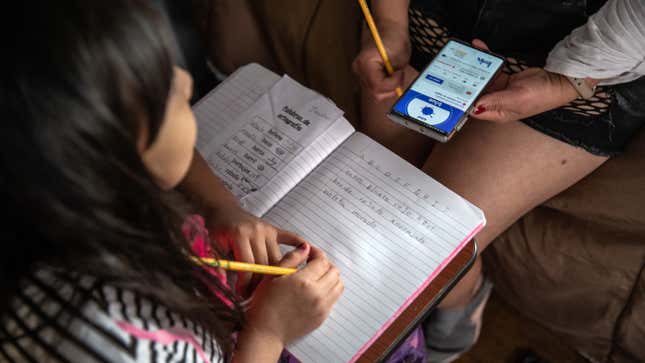Working Parents Are Being Fucked Over As Usual and No One Seems to Care
Latest

Working-class parents have long known that our childcare system, if one can even call it a system, is untenable. Even the cost of “affordable” childcare pushes hundreds of thousands of families into poverty each year. Barring paid care, many are forced to stitch together unwieldy arrangements, depending on grandparents and neighbors; for some, the inability to obtain care means taking a part-time job, or leaving the workforce altogether, which brings its own set of financial struggles. School is a sort of de facto childcare, but even the school year is designed for parents with resources, those who can, once summer hits, shoo their children off to camp.
Now, with the covid-19 pandemic, even the fairly well-off are realizing that the childcare system is impossible. Working parents have essentially been told since the beginning of the pandemic by all levels of our government to suck it up and figure out how to balance childcare, schooling, and work on their own. (That’s a charitable description—parents are really being told, “Eat shit and drop dead.”)
Lately, I’ve been talking to my oldest sister, who (along with her husband) is raising three school-age children while juggling two part-time jobs, and is quickly sinking into a pit of despair. After months of trying to navigate remote learning and childcare and work and everything else that makes up one’s life in the midst of a pandemic, she’s exhausted and frustrated. When she thinks about the upcoming school year, which will likely be a blend of in-person and at-home distance learning, she just loses whatever shred of optimism she has left.
“It’s a complete effing nightmare,” she texted me the other day. “I think we’re all just broken and defeated.”
-

-

-

-

-

-

-

-

-

-

-

-

-

-

-

-

-

-

-

-

-

-

-

-

-

-

-

-

-

-

-

-

-

-

-

-

-

-

-

-








































